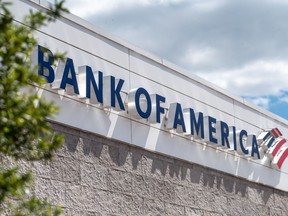Optimism in the Face of Adversity
Despite the second wave of coronavirus cases sweeping across the country, Canadians are growing increasingly optimistic about the housing market. A recent survey by Nanos Research for Bloomberg News suggests that 44% of respondents expect the value of real estate in their neighborhood to increase over the next six months. This is a significant jump from previous readings and marks one of the strongest showings in the past seven years.
A Shift in Sentiment
The share of Canadians who expect home prices to drop has also decreased, down to 27% – its lowest level since mid-March. This shift in sentiment is a welcome development for the housing market, which has been a bright spot in Canada’s economic recovery from COVID-19.
Pent-Up Demand and Low Interest Rates
The combination of pent-up demand, low interest rates, and tight inventory has driven home prices and sales to record levels. While this surge may be unsustainable in the long term, it has provided a boost to consumer confidence levels.
A Stabilization of the Market
Economists predict that the gains will eventually slow down as cases rise and restrictions are reimposed. Benjamin Tal, Deputy Chief Economist at CIBC, noted that "as we enter winter, things will slow down economically and we will see it in the housing market." While this may not necessarily mean a decline in prices, it is likely to lead to a stabilization of the market.
Offsetting Declining Sentiment
The growing optimism about the housing market has helped offset declining sentiment around the broader economic outlook. As rising virus cases prompt local authorities to impose new social distancing measures, Canadians are becoming increasingly pessimistic about the economy. However, their confidence in the housing market remains high.
Regional Variations
Sentiment is highest in Quebec and lowest in the energy-rich Prairie provinces. This regional variation suggests that while Canadians as a whole may be optimistic about the housing market, there are still significant differences in opinion across different parts of the country.
The Bloomberg Nanos Canadian Confidence Index
The Bloomberg Nanos Canadian Confidence Index, a composite measure of financial health and economic expectations based on the polling, has been little changed since the end of August. This suggests that while Canadians may be optimistic about the housing market, their overall confidence in the economy remains relatively stable.
A Bright Spot in the Economy
The residential real estate market has been a bright spot in Canada’s economic recovery from COVID-19. While it is unlikely to sustain its current level of growth, it remains an important driver of consumer confidence and economic activity.
Key Statistics
- 44% of respondents expect the value of real estate in their neighborhood to increase over the next six months.
- The share of Canadians who expect home prices to drop has decreased to 27%, its lowest level since mid-March.
- The Bloomberg Nanos Canadian Confidence Index has been little changed since the end of August.
Conclusion
Despite the challenges posed by the second wave of coronavirus cases, Canadians are growing increasingly optimistic about the housing market. While this optimism may be unsustainable in the long term, it provides a welcome boost to consumer confidence levels and helps offset declining sentiment around the broader economic outlook.



